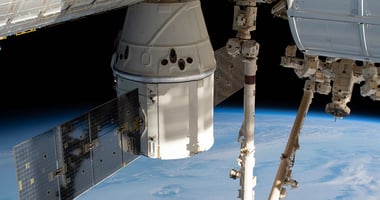The world’s population continues to grow, creating an urgent need for food and a more efficient way...
Bureaucracy, Science and Engineering
The James Webb Space Telescope is the successor to the Hubble Telescope and is one of the most expensive single devices built in human history. So far, the cost of the telescope has been more than $10 billion and operational costs will continue to add up over the years. The question is, is it worth it? What will be the return on the incredible investment in time, money, and resources? Some people argue that we should be investing in other more urgent issues, like healthcare, education, or environmental issues. But others believe that the search for new knowledge is essential for humanity's future and that every bit of new knowledge is invaluable.
The James Webb Space Telescope (JWST) was placed in orbit around the sun and it will be used to study the formation of the universe, and continue humanity's fascination with the potential for alien life on other planets. The JWST's main lens is more than 20 feet in diameter and theoretically will be able to detect light that distant galaxies emitted more than 13 billion years ago. In all practicality, it is studying the past in the hope that scientists will be able to better understand the formation of the universe.
If it works as planned it will be touted as a marvelous feat of engineering, and hundreds of scientists and engineers were employed for many years in the design and building of the telescope. Employment in itself certainly has some practical value, but one must wonder, is this a practical or even a reasonable use of resources?
The JWST was fourteen years late and more than $10 billion over budget. It is one of the worst examples of bureaucratic failure in recent history. From the initial design phase all throughout construction, the project was plagued with issues. The program seemed destined for failure but finally managed to launch in late 2021.
Is all knowledge worth the cost? It seems very much like a religious argument where there is no definitive answer. With all of the enormous problems the earth is beset with, it seems inexplicable that political leaders are siphoning the time and efforts of some of the greatest minds on the planet and directing enormous resources at a project that has little to no pragmatic value. Even if the project's stated goal is wildly successful, it will not affect the life of a single human.
The US spent more than a trillion dollars on the space race so far, and there is a strong argument that by allowing the government to be the primary director of space and not private enterprises, the cost of access to space was driven up. Government bureaucracy drove the need for efficiency out of the system. Like the inefficiency experienced with the JWST, other projects like the Space Shuttle program were plagued with issues.
There were some small scientific advances made in manufacturing processes and potentially in material science from the space race, but it is highly likely these advances would have been made by commercial companies at a fraction of the cost anyway.
The recent entry of SpaceX into building spacecraft is a case in point. In less than 10 years they drove down the cost of accessing orbit by more than 10 fold. How did they do it? They don't think or operate with the same inefficiency as a government agency. They focused on innovation and efficiency. Their leadership team was comprised primarily of executives from commercial enterprises where ROI matters and they acted accordingly.
By employing scientists and engineers on projects, the government removes them from the supply of civilian employers and drives up the cost across disciplines. Government bureaucracy is never an efficient manager of resources and the world would be better off if the government would invest in research and development in partnership with private enterprises that are diversified and not solely reliant on government contracts.
The James Webb Space Telescope is a prime example of why extreme caution should be exercised when governmental bureaucracies are in charge of science and engineering projects. Private enterprises are better suited to conducting research and development, and the government should have very little involvement.
We hope this has given you something to think about. Please let us know your thoughts in the comments below!



